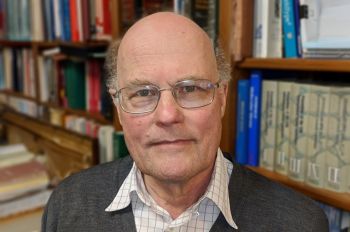Armour College of Engineering Alumnus Martin Cooper Speaks at IIT Presidential Lecture
On November 10th, the “father of the cell phone,” Martin Cooper (EE '50, M.S. '57), was the featured speaker during the seventh installment of the Presidential Lecture Series, hosted by President John L. Anderson. IIT Regent, Former Chairman of the Board, and Chairman Emeritus of Exelon Corporation, John W. Rowe, introduced the lecture titled: The Birth and Death of the Cell Phone. Cooper shared the inside story of how the cell phone came to be and predicted what will bring it to its demise in the future.
Before Cooper’s team at Motorola invented the concept of the cell phone we all know today, a team at Bell Labs had conceived the idea of a radio based phone to be used in cars. The big insight the Bell Labs team missed out on, Cooper said, was that people are mobile and that a handheld phone would have a bigger market than a car based one.
The first handheld cell phone Motorola developed was completed in only a few weeks as a way to impress the FCC and get them to open up radio frequencies that we reserved for television. It worked and the FCC opened up the frequencies.
Cell phones have had a positive impact all over the world, and in ways you might least expect it. Cooper shared that farmers in Kathmandu have risen out of poverty because they now use a cell phone to find out who is paying the best price for their produce. In Mexico, doctors use a device that sends them updates on the condition of pregnant women in rural areas via cell phone. This device increases the chance of survival of both mother and child in areas where quality healthcare can be hard to attain.
It can be hard to imagine the demise of a device that people have become so attached to in the last couple decades. Cooper predicts that the cell phone be replaced by a personal network of sensors and devices that are imbedded into our bodies that will monitor our condition and relay that information to where it is needed. And yes, you will still be able to make calls through it.




